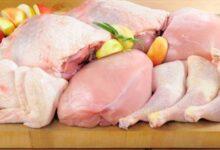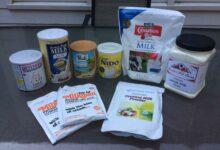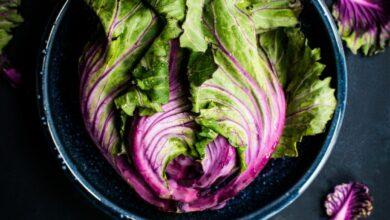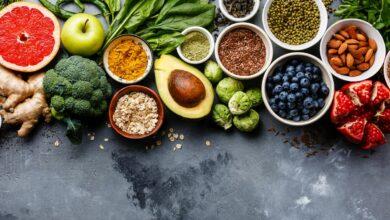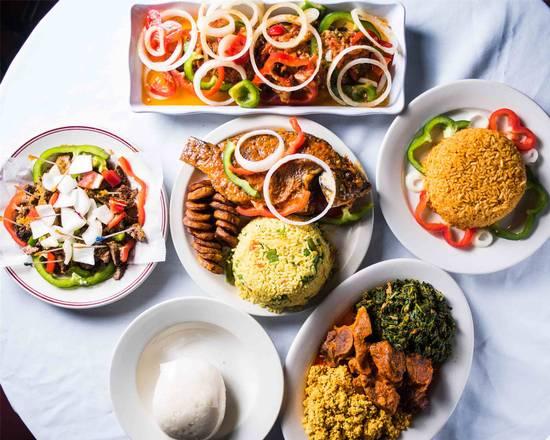
15 Best Traditional Cuisines in Nigeria
Nigeria, known for its cultural diversity, is a treasure trove of culinary delights. Traditional Nigerian cuisine reflects the country’s rich history, regional variations, and indigenous ingredients. From mouthwatering stews to flavorful soups, aromatic rice dishes, and delectable snacks, Nigerian traditional cuisine offers a diverse range of flavors, textures, and culinary experiences.15 Best Traditional Cuisines in Nigeria
This article aims to delve into the 15 best traditional cuisines in Nigeria, highlighting their unique characteristics, popular dishes, and cultural significance.InformationGuideNigeria
👉 Relocate to Canada Today!
Live, Study and Work in Canada. No Payment is Required! Hurry Now click here to Apply >> Immigrate to CanadaRead Also: 15 Best Cooking Oil in Nigeria
15 Best Traditional Cuisines in Nigeria
1. Igbo Cuisine:
Igbo cuisine, originating from the southeastern region of Nigeria, is characterized by its heavy use of vegetables, palm oil, and protein sources such as fish, meat, and poultry. Popular Igbo dishes include Ofe Onugbu (bitter leaf soup), Nkwobi (spicy cow foot), Akpu/ Fufu (starchy accompaniment), and Abacha (African salad). Igbo cuisine showcases a wide variety of flavors and ingredients, representing the cultural heritage of the Igbo people.
2. Yoruba Cuisine:
Yoruba cuisine, hailing from southwestern Nigeria, features bold flavors, spices, and a variety of stews and soups. Popular Yoruba dishes include Amala (yam flour), Ewedu (jute leaf soup), Gbegiri (bean soup), Efo Riro (vegetable soup), and Ofada Rice (local parboiled rice). Yoruba cuisine emphasizes the use of ingredients such as locust beans, crayfish, and palm oil, creating vibrant and satisfying dishes.
3. Hausa Cuisine:
Hausa cuisine, prevalent in northern Nigeria, incorporates the use of millet, sorghum, and rice as staple grains. It is renowned for its hearty and spicy flavors. Prominent Hausa dishes include Tuwo Shinkafa (millet or rice pudding), Miyan Kuka (baobab leaf soup), Kilishi (spiced dried meat), Suya (grilled meat skewers), and Dambu Nama (sundried meat snack). Hausa cuisine reflects the region’s agricultural practices and nomadic heritage.
Read Also: 15 Best Nigerian Foods in Las Vegas
4. Ibibio/Annang Cuisine:
Ibibio/Annang cuisine represents the culinary traditions of the Akwa Ibom and Cross River states in southern Nigeria. It is known for its reliance on seafood, vegetables, and spices. Popular dishes include Afang Soup (wild spinach soup), Edikang Ikong (vegetable soup), Atama Soup (palm nut soup), and Ekpan Nkwukwo (coconut rice). Ibibio/Annang cuisine offers a harmonious blend of flavors and ingredients, reflecting the coastal influence on the region’s gastronomy.200 Romantic Love Messages
5. Tiv Cuisine:
Tiv cuisine, originating from Benue State in central Nigeria, celebrates the region’s agricultural abundance. Tiv cuisine revolves around staple crops like yam, corn, and beans. Prominent dishes include Tiv Kwande (yam porridge), Ihyov (cornmeal pudding), and Akpehe (Tiv-style pepper soup). Tiv cuisine exemplifies the simplicity and nutritious nature of farm-to-table cooking.
6. Urhobo Cuisine:
Urhobo cuisine represents the culinary traditions of the Urhobo people in Delta State. It is characterized by the use of ingredients such as palm fruits, plantains, cassava, and fish. Popular Urhobo dishes include Oghwo Soup (palm fruit soup), Owho Soup (banga soup), Starch (starchy accompaniment), and Ukodo (Urhobo-style pepper soup with yam). Urhobo cuisineexemplifies the use of local ingredients and traditional cooking techniques to create delicious and satisfying meals.
👉 Relocate to Canada Today!
Live, Study and Work in Canada. No Payment is Required! Hurry Now click here to Apply >> Immigrate to Canada7. Itsekiri Cuisine:
Itsekiri cuisine is renowned for its seafood-based dishes, owing to the Itsekiri people’s proximity to the Niger Delta. Fresh fish, prawns, crabs, and other seafood are central to their culinary repertoire. Itsekiri dishes include Owo Soup (seafood soup), Otoro Soup (efo elegusi), and Fisherman Soup (a medley of seafood). Itsekiri cuisine showcases the region’s abundant aquatic resources and culinary expertise.
8. Efik Cuisine:
Efik cuisine, originating from Cross River State, combines the flavors of the coastal and inland regions. It is known for its vibrant soups and seafood dishes. Popular Efik dishes include Afia Efere (white soup), Edesi Isip (cornmeal pudding), and Ekpang Nkukwo (cocoyam and vegetable porridge). Efik cuisine celebrates the bountiful produce of the land and sea.
9. Idoma Cuisine:
Idoma cuisine, prevalent in Benue State, revolves around staple foods like yam, corn, and vegetables. The cuisine showcases the agricultural practices and culinary traditions of the Idoma people. Popular dishes include Ikwokrikwo (spiced yam porridge), Agada Soup (melon seed soup), and Ikwogbo (groundnut soup). Idoma cuisine highlights the importance of farming and communal meals in their culture.JAMB Form
Read Also: 15 Best Seafood Restaurant in Lagos Nigeria
10. Efik/Ibibio Snacks:
The Efik and Ibibio communities are known for their delectable snacks and street food. Popular snacks include Akara (bean cakes), Ukwa (breadfruit), Abak Atama (palm nut rolls), and Ekpang Nkukwo (cocoyam and vegetable dumplings). These snacks are enjoyed as quick bites or as accompaniments to meals, showcasing the diverse culinary heritage of the region.
11. Delta Cuisine:
Delta cuisine represents the culinary traditions of the diverse ethnic groups in Delta State. It features a fusion of flavors, incorporating elements from Urhobo, Itsekiri, and Isoko cuisines. Popular dishes include Ofe Owerre (bitter leaf soup), Banga Soup (palm nut soup), and Oghwo Ofigbo (Ogbono soup). Delta cuisine celebrates the region’s agricultural abundance and cultural diversity.
12. Calabar Cuisine:
Calabar cuisine, originating from Cross River State, is renowned for its rich flavors and exotic ingredients. It combines elements from Efik, Ibibio, and Ejagham cuisines. Signature dishes include Afang Soup (wild spinach soup), Edikang Ikong (vegetable soup), and Atama Soup (palm nut soup). Calabar cuisine showcases the region’s use of flavorful herbs, spices, and exotic meats.105 Good Morning Messages
13. Kanuri Cuisine:
Kanuri cuisine represents the culinary traditions of the Kanuri people in northeastern Nigeria. It is characterized by hearty and flavorful dishes, often prepared with millet, sorghum, and rice. Popular Kanuri dishes include Miyan Kuka (baobab leaf soup), Fari Masara (spiced grilled chicken), and Waina (rice pancakes). Kanuri cuisine reflects the nomadic heritage and reliance on agriculture in the region.NYSC Portal
14. Bini Cuisine:
Bini cuisine, originating from the ancient Benin Kingdom, combines flavors from the Edo people in Edo State. It features a variety of soups, stews, and side dishes. Popular Bini dishes include Oghwo Ofe (vegetable soup), Ekpoma Oka (spicy yam porridge), and Igbagba Ede (stuffed plantain). Bini cuisine showcases the region’s use of local spices, herbs, and ingredients to create flavorful and satisfying meals.
15. Fulani Cuisine:
Fulani cuisine represents the culinary traditions of the Fulani people, who are spread across various regions in Nigeria. Their cuisine emphasizes the use of dairy products, millet, and meat. Popular Fulani dishes include Tuwon Dawa (millet pudding), Masa (rice pancakes), and Miyan Taushe (pumpkin soup). Fulani cuisine reflects the pastoral lifestyle and the reliance on livestock in their culture.15 Best Freelance Websites in Nigeria
Read Also: 15 Best Catering School in Abuja
Conclusion
Nigeria’s traditional cuisine is a testament to the country’s diverse cultural heritage, regional variations, and agricultural abundance. The 15 best traditional cuisines mentioned in this article, including Igbo, Yoruba, Hausa, Ibibio/Annang, Tiv, Urhobo, Itsekiri, Efik, Idoma, Efik/Ibibio snacks, Delta, Calabar, Kanuri, Bini, and Fulani cuisines, offer a wide array of flavors, ingredients, and culinary experiences.
These traditional cuisines reflect Nigeria’s cultural, historical, and geographical diversity. They highlight the use of local ingredients, traditional cooking techniques, and community-centric meals that have been passed down through generations. Traditional Nigerian cuisine not only satisfies the taste buds but also provides insights into the country’s cultural heritage, agricultural practices, and communal values.
Read Also: 15 Best Seasoning Cubes in Nigeria
Preserving and promoting traditional Nigerian cuisine is essential for celebrating the country’s culinary diversity, supporting local farmers and food producers, and promoting cultural tourism. By embracing and appreciating these traditional culinary treasures, Nigeria can continue to showcase its unique gastronomic heritage to the world.
Check JAMB Result
Check and Confirm: How much is Dollar to Naira
